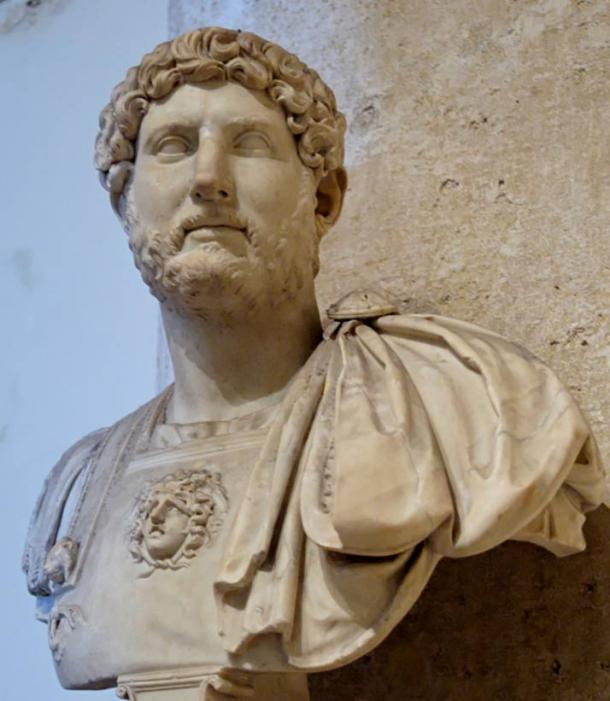The Best Pagan Emperor?
Marcus Aurelius Antoninus, known more commonly as Marcus Aurelius, was the 16th emperor of Rome, who reigned from 161 AD to his death in 180 AD. Marcus Aurelius is remembered as the last of the Five Good Emperors (the other four being Nerva, Trajan, Hadrian and Antoninus Pius). Apart from being a Roman emperor, Marcus Aurelius is also known today for his intellectual pursuits and is considered as one of the most important Stoic philosophers.
The Life of Marcus Aurelius
Marcus Aurelius was born into an aristocratic family in Rome in 121 AD. His uncle was Titus Aurelius Antoninus (Hadrian’s successor, the emperor Antoninus Pius), who was adopted by Hadrian, after his earlier choice of successor died suddenly. Hadrian also arranged for the adoption of Marcus Aurelius by Antoninus. As a result of this adoption, the youth once known as Marcus Annius Verus became renamed as Marcus Aurelius Antoninus.

Marble bust of Hadrian at the Palazzo dei Conservatori. (Public Domain)
Hadrian died in 138 AD, and was succeeded by Antoninus, who reigned till his death in 161 AD. During the early part of Marcus’ reign, he ruled the empire with a co-emperor, Lucius Verus, who was his ‘half-brother’. Lucius’ father was Lucius Aelius, Hadrian’s first choice of successor. Lucius became Marcus’ ‘half-brother’ when he was adopted by Antoninus Pius. In 169 AD, Lucius Verus died, and Marcus was left as the sole ruler of the Empire. In 177 AD, Marcus once again took a co-emperor, this time, his son, Commodus. Marcus died three years later, in 180 AD.

Portrait of Lucius Aelius (101–138 AD) inserted afterwards in a heroic statue (CC BY 2.5)
Marcus in ‘The Caesars’ and Other TextsA contest was then held at the banquet to determine who the best emperor was, in which Marcus, as expected, emerged victorious.
Marcus Aurelius’ virtuous deeds have also been recorded in the historical sources. For instance, in the Historia Augusta, it is claimed that:
“When he (Marcus) had drained the treasury for this war (the Marcomannic war), moreover, and could not bring himself to impose any extraordinary tax on the provincials, he held a public sale in the Forum of the Deified Trajan of the imperial furnishings.”
The emperor is also viewed positively by the historian Cassius Dio, who wrote, amongst other things, that:
“… [Marcus] had been emperor himself nineteen years and eleven days, yet from first to last he remained the same and did not change in the least. So truly was he a good man and devoid of all pretence.”
The post The Best Pagan Emperor? appeared first on LewRockwell.
Leave a Reply